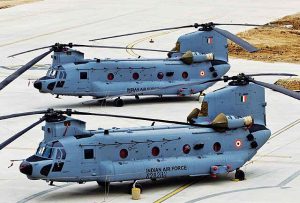 In 2009, a new global establishment was founded. BRICS is an economic and political alliance between Brazil, Russia, India, China, and South Africa, that seeks to counterbalance traditional Western influence.
In 2009, a new global establishment was founded. BRICS is an economic and political alliance between Brazil, Russia, India, China, and South Africa, that seeks to counterbalance traditional Western influence.
As a founding member and the nation with the second-largest economy in BRICS, India is a key player in the alliance. However, India purses a unique geopolitical strategy, choosing to be both an active member of BRICS while also increasing positive relations with its Western allies.
India and Russia have maintained close relations for a long time, primarily as military partners. Russia is India’s largest arms provider, accounting for 45% of all Indian military imports.
Notably, the Indian Army operates Russian T-90 main battle tanks and S-400 long-range surface to air missile batteries, the Indian Air Force predominantly operates Russian-designed aircraft like the MiG-29K and Su-30MKI, and the Indian Navy operates Russian-made aircraft carriers and frigates. The extensive military cooperation between the two countries extends to joint exercises and partnerships on research and development for future systems.
This heavy reliance on Russian equipment has drawn a level of suspicion from the West, specifically the United States, who threatened to sanction India for its trade with Russia in 2021.
Though, this hasn’t had a large effect on relations with the U.S. While there have been disagreements, like over India’s purchase of the Russian-made S-400 air-defense system and their abstention from an UN resolution condemning Russia’s invasion, trade between the U.S. and India is stronger than it has ever been.
The U.S. is India’s largest trading partner, and India is the U.S.’s 9th largest, trading raw materials and other products in exchange for aircraft, fertilizer, and computer and medical equipment. Citing these vital trade links, the U.S. abandoned its 2021 plans for sanctions.
Along with robust trade connections, the two countries also invest in one another frequently. The U.S. has invested heavily in India’s power grid, communication, and general infrastructure.
In 2023, the two countries signed the U.S.-India initiative on Critical and Emerging Technology (iCET) which promises cooperation on the research and development of modern technologies such as AI and quantum computing, along with cooperation in the semiconductor industry.
On the other hand, India has a tense relationship with its neighbor China. The close ties between China and Pakistan, one of India’s largest political rivals, has exacerbated border disputes between India and China.
Despite economic inter-reliance between India and China, India has recently taken a more isolationist stance toward China, preferring to develop domestic industries and become more self-reliant instead of relying on cheaper Chinese industries and products. This is very similar to the U.S.’s stance on China, and exemplifies India’s growing suspicion regarding the East Asian nation.
In the Far East, India has a much closer relationship with Japan. India is one of the three nations with which Japan has a security pact and the two countries conduct joint military exercises along with the U.S.
Besides military cooperation, the two countries have strong economic ties, with the Japanese government and corporations investing heavily into production facilities and regional infrastructure in India. In 2017, the Japanese government signed a deal with India to help build a high speed rail line from Mumbai and Ahmedabad, as a token of their friendship.
India pursues a very unique diplomatic strategy, preferring to maintain positive ties with both sides of the geopolitical divide. The country has a special military relationship with Russia and is a part of a major economic alliance (BRICS) that seeks to counter Western global power.
Despite this, the country maintains important economic ties to the West and is an important strategic partner of Japan and the U.S. While there has been strife over the country’s ties to both sides of the geopolitical split, so far they have managed these challenges without a major break in international relations.

